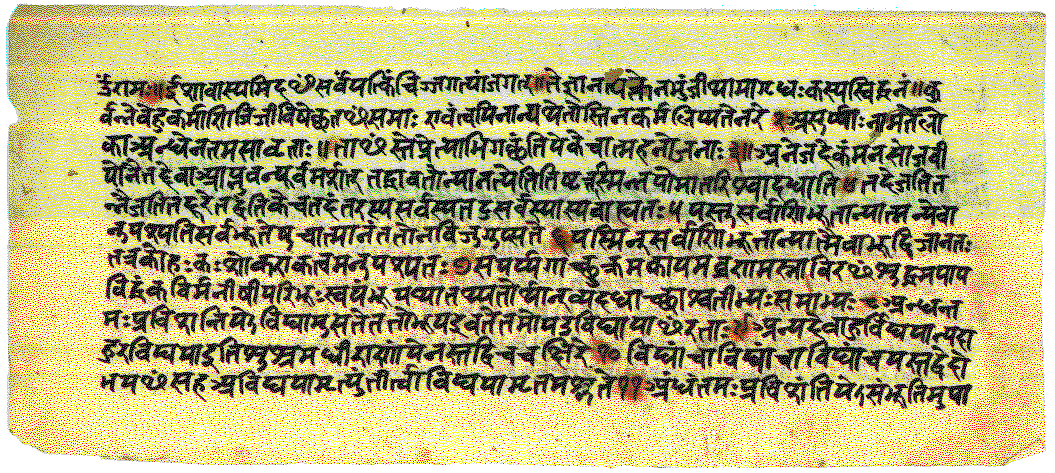Śaṅkara’s Philosophy: A Brief Overview!
Śaṅkara’s fundamental Vedāntic stance can be summarized as follows: That the Brahman (Absolute) is One only, without a second and is of the nature of Pure Consciousness and Bliss; that It is always, absolutely, one with the Ātman (Self). ब्रह्म सत्यम् जगत मिथ्या जिवो ब्रह्मैव न परः। brahma satyam jagan-mithyā jivo-brahmaiva naparāḥ : (Brahmajñavali 20)—Brahman is real, the world is unreal; the individual self and the Supreme Reality are one and the same.’]
Śaṅkara in his commentary to Brahma-Sūtra 3.2.7 explicitly states: ‘At no time has the Jiva ever not been one with Brahman’ (न कदाचिज्जीवस्य ब्रह्मणा सम्पत्तिर्नास्ति na kadācit jīvasya brahmaṇa sampattir nāsti); that the many-fold world of appearance is verily an expression/projection of Brahman alone (sarvaṁ hi nānātvaṁ brahmaṇi kalpitameva) and is ultimately non-real (mithyā); that the Brahman (Ultimate Reality) is of the nature of satyam-jñānam-anantam—Existence, Consciousness, Infinitude; that self-less actions (niṣkāma karma) play preparatory role in purifying the mind to receive the wisdom of Self-Knowledge; that ignorance (avidyā) alone is the cause of human bondage; Self-Knowledge (ātam-jñānam) alone is the means to liberation; and that the spiritual freedom or liberation (mukti or mokṣa) is not possible until one realizes or attains the knowledge of oneness of the Self, Ātman, and the Absolute, Brahman (brahmātma’aikya-bōdham).
All this, of course, is from the empirical standpoint (vyavahārika-driṣti); however, from the transcendental standpoint (paramārthika driṣti), Self is ever-free and does not need to be liberated. This freedom is eternal and is the very nature of the seeker indeed: nityatvānmokṣasya sādhakasvarūpāvyatirekācca (Bṛhadāraṇyaka Upaniṣad. 3.3.1).


Recent Comments